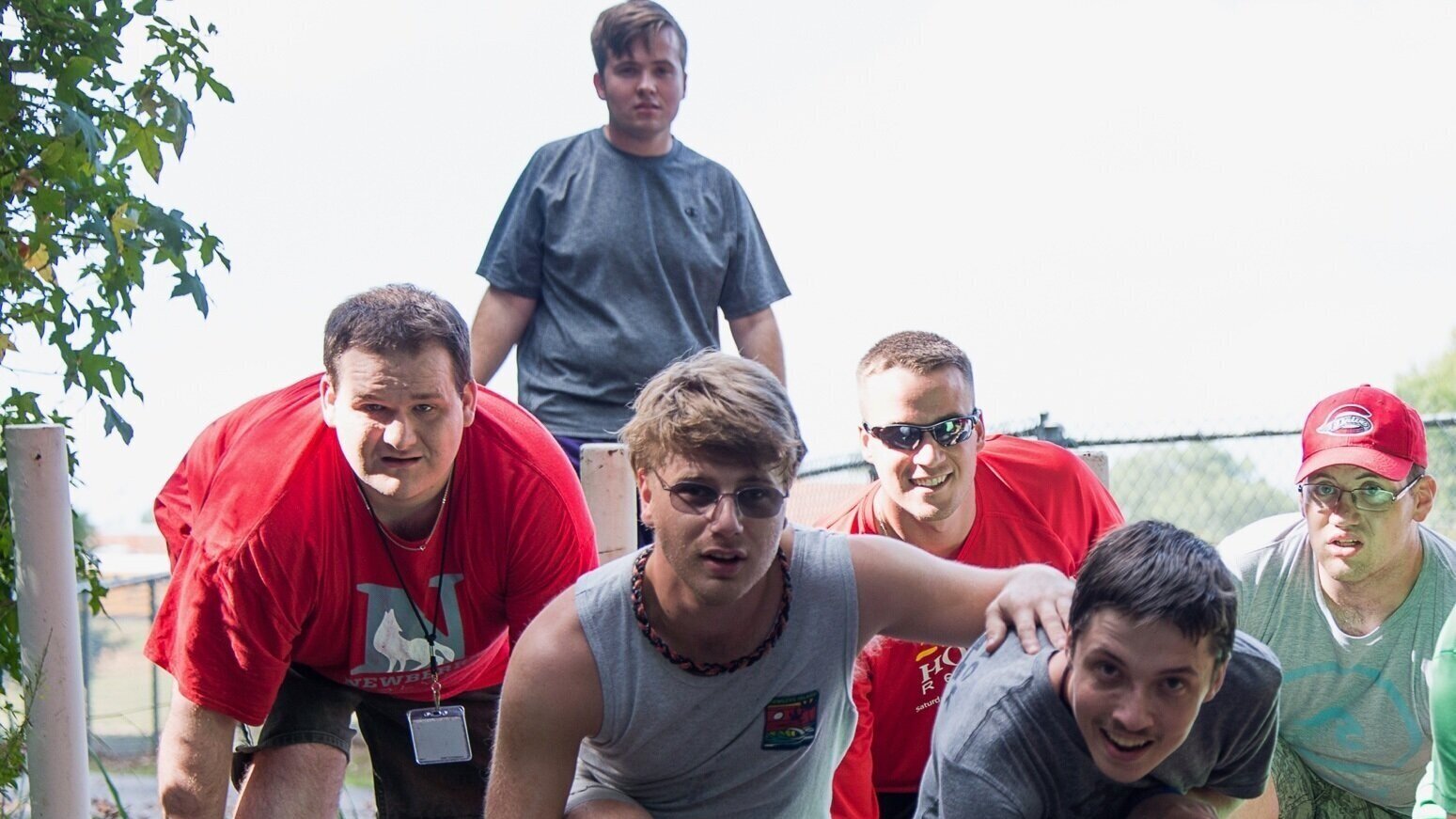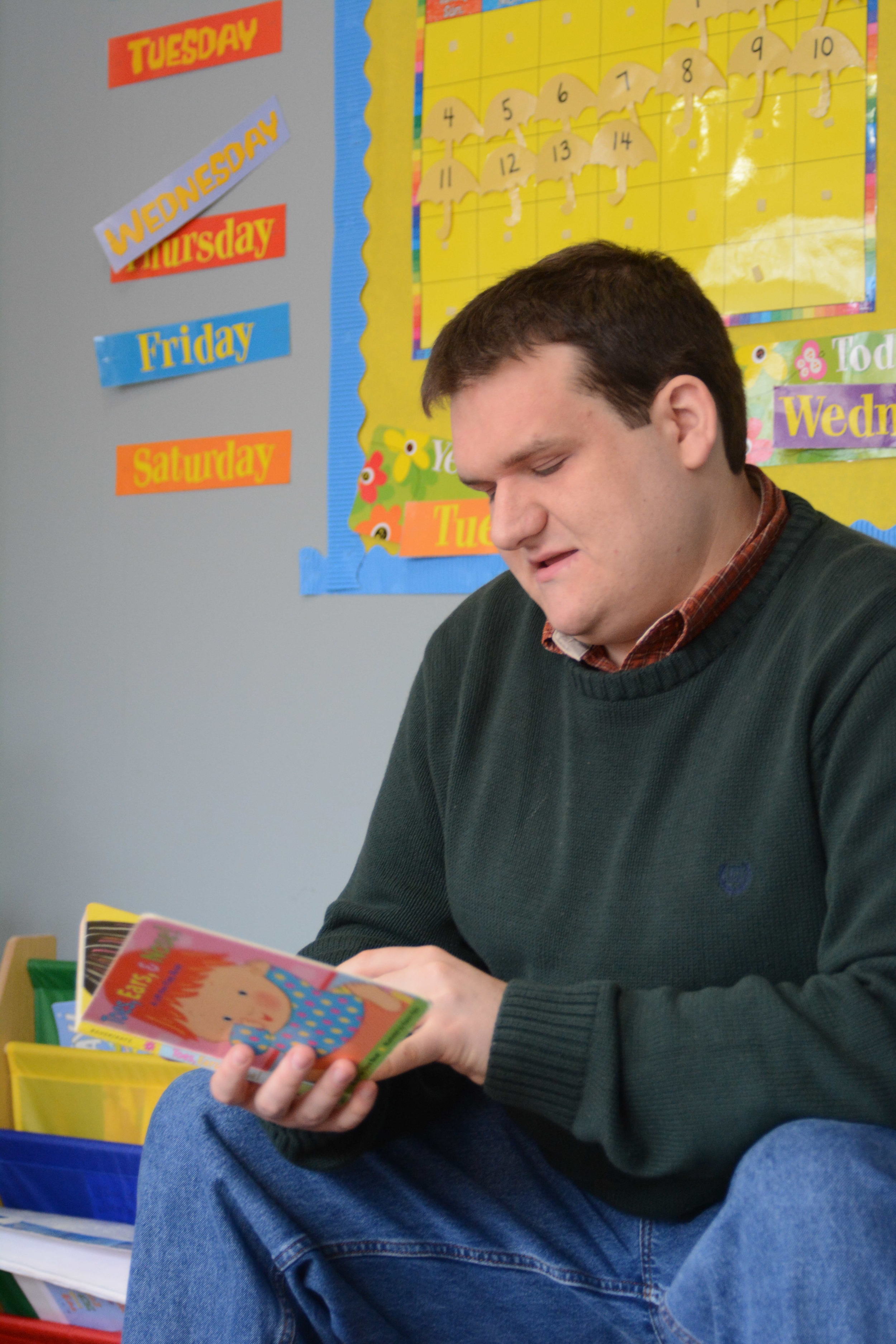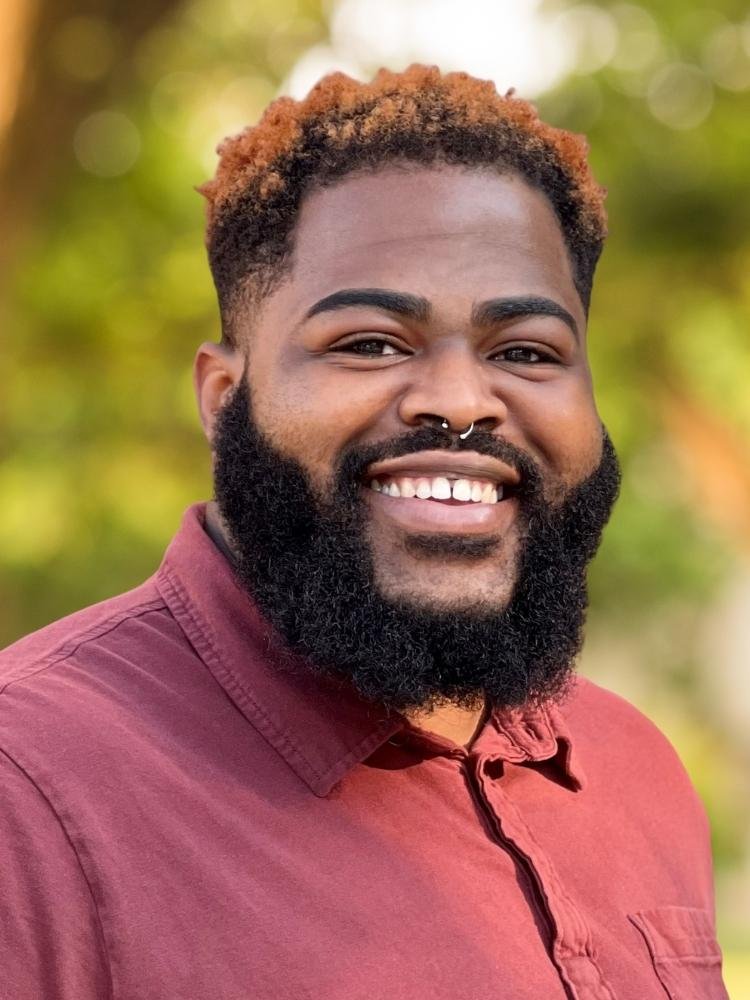
Our Adult Services
As the population of adults with autism expands exponentially, we are working to develop innovative services to meet a wide range of needs and to shape policies that will fund these services. Unlike most adult services programs, ours is developed and overseen by an experienced Board Certified Behavior Analyst and implemented by Registered Behavior Technicians. Currently, our adult service program, Hope Alive, is based at our Woodruff Campus.
We provide up to 3 service units daily (8:30-11:00, 11:00-2:00, and 2:00-4:30), Monday through Friday. Those time units are used for an individualized combination of services with personalized goals for each service:
ABA Therapy - individual therapy in a 1:1 setting
Day Services - small peer groups
Group Employment/Career Prep - small peer groups
Individualized Employment - offsite work with job coach support.
ABA Therapy follows the model of our Therapy program.
Day Services focus on building communication, social engagement, independence, life skills, self-advocacy, and self-control. Participants spend time each week in our Hope House, an onsite home that provides a real-life environment for practicing skills such as handling groceries, cooking, using a dishwasher, doing laundry, making beds, eating together, etc. We also include weekly community outings.
Career Prep/Group Employment includes the opportunity to work in our Printed by Hope business, a digital shirt-printing operation housed at our Woodruff Campus. The Printed by Hope operation offers a wide range of job skills (sorting shirts, running printing machines, managing inventory, engaging with online customers). Because it is in our own facility, we can individualize both the amount of time engaged in work and the tasks to be done during that time. Individuals in Group Employment are paid for their work; individuals in Career Prep are in an apprenticeship role.
Individualized Employment provides coaching support in the workplace, typically a local business.
We are a Department of Disabilities and Special Needs (DDSN) Qualified Provider. We also have staff who are Qualified Providers for Behavior Support Services for those clients who need it.
We accept private pay and Medicaid waiver-based funding (through both the Community Supports Waiver and the Intellectual Disability and Related Disabilities Waiver) for Day Services, Group Employment, and/or Individualized Employment; this funding typically covers 2 units per day. ABA Therapy is typically funded through Medicaid (ends at 21st birthday), insurance, and/or private pay.
Transitioning to Adulthood
We suggest that you begin consideration of transition issues even during pre-teen years. It is helpful to give yourself time to think about options long before decisions are required. We recommend Autism Speaks Transition Tool Kit as a great organizational and informational resource.
Some things to think about include:
College – If college is a viable option, be aware that educational institutions are beginning to provide increased support for individuals with disabilities, including Section 504 plans. A “certificate” earned through an IEP will not be recognized by most colleges and universities; a high school diploma or GED will be required.
Employment – By 10th grade, a student with autism can be part of the Vocational Rehabilitation planning. We focus on employment skills in our Hope Alive program.
Guardianship – The only way for a parent to maintain the ability to make decisions for their child beyond the age of majority (usually 18) is to be given legal guardianship (a court-ordered arrangement that gives one person legal authority to make decisions on behalf of someone who has been deemed “incapacitated.”) This process may require an attorney and take months to complete.
Health Insurance – Private insurance policies may allow continued coverage for disabled adult children.
Seizures – It has been estimated that 25% of individuals with autism begin to have seizures during puberty.
Sexuality – Often, sexuality is overlooked for this population. For many on the autism spectrum who require support, caregivers must consider this aspect of life to be sure that individuals have sufficient self knowledge and personal safety skills.
Social Security – An adult deemed “disabled” by the Social Security Administration may be eligible for either Supplemental Security Income (“SSI”) or Social Security Disability Insurance (“SSDI”).
Transportation - If a driver’s license is an option, consider opportunities to provide extra practice as early as possible. If not, think about increased training in the use of public transportation, bicycling, or walking trails.
Waivers – Some funding is available through Medicaid waivers, but typically a long waiting list exists to obtain a waiver “slot.” Talk with your service coordinator about how and when to get on these waiver lists.
Puberty Webinar (Male) with Mike Guyton-Nunley, MD, September 13, 2022
Puberty Webinar (Female) with Dr. Shannon Johnson, OB-GYN, August 9, 2022
Guardianship Webinar with Cass Gorton, Esq., February 4, 2021
ABLE Account Information for South Carolina
Project Hope discusses Special Needs Trusts with local attorney.
On-site Employment Opportunities
Project Hope believes that paid employment should be an option for those who are not suited for competitive 40-hour/week jobs. We want to empower people to start with small increments of work and to build upon success. To make that path possible, we have developed on-site in-house employment opportunities for janitorial services and for participating in our Printed by Hope business; both options provide minimum wage jobs while allowing time to practice other important skills. “Printed by Hope” is a digital shirt-printing operation with six major pieces of equipment, three stockrooms, and an on-line presence. This business has positions that range from opening boxes and sorting shirts by color to managing the machinery and handling our website-based store. These employees also have opportunities to work face-to-face with the public. Having completed 25,000+ prints, our group has made measurable gains in their social engagement, effective communication, and independent job skills. We invite you to check out our store and to consider Printed by Hope for any custom printing needs you may have.
Behavior Supports
Teens and adults with autism may have behaviors that can hurt themselves, appear threatening to others and prevent them--and their families--from taking part in everyday activities. Project Hope Foundation offers individualized support to address these problem behaviors through our Hope Alive program. Using Applied Behavior Analysis (ABA), we work to identify the reasons why people engage in these behaviors and teach them more positive ways to access what they want and need. These "Behavior Support Services" are funded primarily by the Intellectual Disability/Related Disabilities (ID/RD) and Community Supports waivers through SC Department of Disabilities and Special Needs (SC DDSN).
There are four main components to the Behavior Supports process:
Initial assessment. The Behavior Supports Consultant typically interviews family members and/or key staff and observes to determine the need for Behavior Support Services.
Functional Assessment. Through direct observation, interviews, record reviews, and collecting data, the Behavior Supports Consultant determines what specific behaviors should be decreased (including a determination of why the problematic behavior is happening) and what skills should be taught.
Behavioral Intervention. The Behavior Supports Consultant uses the information gathered in the initial and functional assessments to develop a Behavior Support Plan to address all the areas of need. The plan includes detailed definitions of all targeted behaviors, specific responses to problematic behaviors, and methods of teaching new skills. The plan includes a method of data collection. The Behavior Supports Consultant trains all key staff and/or family members to implement the plan.
Follow-Up. The Behavior Supports Consultant conducts frequent follow-up visits to ensure that the plan is working, analyzes the data that are collected, and makes any needed changes to the plan.
To access this service, contact your service coordinator or visit the South Carolina Department of Disabilities and Special Needs website.



















Extended Hope
UPDATE: As of March 2020, Extended Hope is currently not active due to COVID-19. Please stay tuned for updates. We are not currently taking interest forms for this service.
Extended Hope is a social program designed to help teenagers and young adults on the autism spectrum acquire and maintain real-life skills that lead to a more independent lifestyle. Students are given opportunities to learn and practice communication skills, real-world coping strategies, life-long health and fitness activities, and other strategies for autonomous living.
To give opportunities to practice and generalize skills, Extended Hope sessions are conducted in a variety of settings, including Hope Academy’s classrooms, community businesses, and private residences. Extended Hope will benefit anyone on the autism spectrum who wishes to enhance social awareness, increase coping skills, and learn to function in a more self-reliant manner.